When i was a young actor starting out in New York , I was granted the privlege of meeting Sue Mengers and the advice she offered me was to take a chance on making it in Holywood.She told me to take 6 months in Hollywood and to see what the result would be and if I got a lucky break to stay there.Well it took me 12 years to get to Hollywood from NY and I had an an opportunity to meet with Sue at a conference and we shared our meeting and her advice. We both laughed and I am still working in the film industry
Vanity Fair Editor in chief Graydon Carter announced this morning that legendary Hollywood agent Sue Mengers died Saturday night at her Beverly Hills home after a number of small strokes. She was 81. Mengers was surrounded by three of her closest friends: Ali MacGraw, Joanna Poitier, and Boaty Boatwright. “Sue was unlike anyone I’ve ever met – a true original,” said Boaty Boatwright, the ICM talent agent. ”Her name became synonymous with women and what she helped us all to accomplish, but her legend is really the vitality with which she lived life, and her wit, which will be celebrated in stories throughout our community for years to come.”
Reclusive in her dotage due to ill health, Mengers made her last major public appearance on May 24th, 2010, when she was interviewed by CAA’s Bob Bookman in the Ray Kurtzman Theater of the agency’s Century City headquarters. It followed a renaissance of sorts for Mengers. Instead of the legendary dinner parties she used to host, she held intimate luncheons in her home for Hollywood power players. (And sometimes tête-à-têtes with today’s agency bosses like Bryan Lourd and Ari Emanuel who regularly picked her brain.) With her blowsy blondness, withering sarcasm, and Borscht Belt banter, Mengers was an unlikely mentor to agents everywhere. Because, at one time or another, this superagent had repped Barbra Streisand, Candice Bergen, Peter Bogdanovich, Michael Caine, Dyan Cannon, Cher, Joan Collins, Brian De Palma, Faye Dunaway, Bob Fosse, Gene Hackman, Sidney Lumet, Ali McGraw, Steve McQueen, Mike Nichols, Nick Nolte, Tatum O’Neal, Ryan O’Neal, Anthony Perkins, Burt Reynolds, Cybill Shepherd, Gore Vidal, Richard Benjamin, Paula Prentiss, and Tuesday Weld in their heyday as a movie rep at CMA (1969-1975), ICM (1975-1986), and William Morris Agency (1988-1990) at which point she retired from the biz altogether.
She was a wealth of information for me about what was happening behind-the-scenes in Hollywood. And she always had those withering sarcasms at the ready. Her plump white flesh still draped in a sea of caftans and mumus, eyes framed in huge tinted glasses, with a soft breathy voice and the mouth of a stevedore, taking hits from an always lit joint, the 5’-2 1/2” inch Mengers was the exact opposite of the stereotypical image of a Hollywood agent, not the cigar-chomping salesman nor the smooth-talking sleek-dressed tenpercenter. Her enemies dismissed her as loud, overbearing and vulgar. But to the stellar list of above-the-title clients in her heyday, Mengers was thera
The protégé of powerful agents Marty Baum and David Begelman and Freddie Fields, Mengers became as infamous as her mentors. She was certainly as talked-about and could boast her own litany of Hollywood lore. There was the story about the time Mengers dropped her card in a star’s soup at Sardis. Or pulled up at a stoplight next to Burt Lancaster, rolled down her window, and offered to represent him. And then there was the day Mengers dropped by director Otto Preminger’s New York office and declared, “I’m the only agent who actually gives head if you hire the client.” (Preminger burst out laughing and immediately contracted for an actor.) But few will ever top her one-liner to Barbra Streisand when the actress turned up on Charlie Manson’s list of celebrity targets after Roman Polanski’s pregnant wife Sharon Tate was murdered: “Don’t worry, honeee. They’re only killing bit players.”
It only added to Sue’s celebrity that she was that rarest of Hollywood creatures — a top female talent agent. In the old days, the successful women agents represented one huge star, many times an actor they had fallen in love with. Sue Carol not only promoted Alan Ladd as an actor but married the man. Eleanor Kilgallen, Monique James and the rest of famed “The Ladies” at MCA were out of the business, having jumped to Universal when Lew Wasserman folded the agency. Few had replaced them. Most women agents were literary agents who handled writers and directors, not superstars. But Mengers not only handled superstars, she became one herself, featured on 60 Minutes and by Dyan Cannon in the 1973 film The Last of Sheila, and eventually in Time magazine: “She has just about everything else she wants. Except George C. Scott as a client, and a body like Candice Bergen’s.”
It didn’t take pop psychology to see how much of Mengers’ ballsiness was simply a cover for the scared and insecure little girl inside. She had been turned out early into a tough world. Born in Hamburg, Germany, into a poor Jewish family, Mengers and her parents barely escaped the Nazis by fleeing to the United States, first living in Utica, New York, and then settling in the Bronx. Her father committed suicide when she was just 12. Menger’s family didn’t speak a word of English, and she learned the language sitting in darkened movie theaters in the Bronx, while dreaming of one day becoming a movie star herself. Later, she even took elocution lessons, hoping to get into acting. “She wanted to be a movie star,” her one-time colleague Tom Korman told me. “If she’d had her druthers, she would have been Marilyn Monroe.” Instead she embarked on a life of helping talent achieve their own stardom. And beneath the insecurities and the self-deprecating humor, Mengers was hard as nails. She was charming, but she was also crafty and, if need be, coldly cutthroat.
She began her showbiz career in 1955 as a secretary at the agency MCA, then at Baum-Newborn where she impressed Marty Baum with her aggressiveness and ingenuity. If he needed something, she would find a way to get it for him. Then Mengers landed at William Morris, once again as a secretary but determined to move up in the business. She started out the way she would operate for the next 20 years, by making friends like Gore Vidal. “She was this pretty, mildly zaftig blonde, and she twinkled,” Vidal recalled. “Once, I heard this laugh inside the agency, I looked out the door, and there she was at the keyhole, eyes and ears both. Frankly, I think she just wanted to have an adventurous life.”
Mengers became a baby agent in the theater department. Instead of calling legend David Merrick cold, Mengers devised a scheme to establish a relationship with the producer. She rented a mink coat (something Mengers would do on more than one occasion in the early years) and floated into Sardis, where she headed straight for Merrick’s table and began suggesting people she said would be perfect for parts in his plays — like Ginger Rogers as a replacement in Hello, Dolly. For months, each night Mengers dropped Merrick three similar passing ideas. Of course, the agent didn’t represent any of the big names she tossed around. But she made her pitches with humor and style and, gradually, the producer looked forward to their conversations. The fact was, Mengers had good ideas. Before long, other producers wanted to talk to her, too.
In 1963, Mengers decided to strike out on her own with agent Tom Korman. When Mengers couldn’t get the people she wanted on the phone, she began sending them funny telegrams. “No one knew who I was, and nobody cared,” she explained. “And, in order to make an impact, I guess I became outrageous.” She used to joke she was so driven, she “would have signed Martin Boorman.” But people began taking note. When she called Sidney Lumet at midnight to sell him a client, the director told her, “If you’re this pushy, I want you to be my agent.”
It was only a matter of time before Mengers ran into David Begelman, maybe the only other agent in New York who could match Mengers quip for quip. The CMA chief had been running into this loud, funny, opinionated woman all over New York. She seemed to be everywhere. One night after the theater, Begelman stopped by Sardis and spotted Mengers sitting with his clients Paul Newman and Joanne Woodward. The next day, Newman telephoned Begelman. “Gee, there was an awfully bright person I met last night,” Newman said. “Blonde. I don’t remember her name. But I think she’s got a terrific idea. She said that if she represented me and Joanne, she’d get Arthur Miller and Bill Inge to collaborate on writing a play for us.” Begelman was thinking that Mengers had chutzpah. Another night, Begelman’s biggest star, Barbra Streisand, told him all excited, “Sue just signed Dirk Bogarde for films in America!” Now Begelman knew that Bogarde had never done a film in the United States, and never would. Mengers had put one over. Not long after, Begelman hired Mengers to work at CMA. “It was 50% because I thought she had potential to be a great agent and 50% to get her out of my hair,” he explained years later.
By that time, some of the creme de la creme of the Broadway set were all Sue’s friends and clients. She was responsible by virtue of who she knew and who she had signed for putting CMA in the Broadway business. Mengers’ real strength was connecting with people. Her whirlwind energy and expletive-laced bon mots made her someone people loved to be around. Her enthusiasm was infectious. Fields and Begelman recognized Mengers’ gifts and helped her hone them.“We just kind of invented a character for her to play, which she was able to play almost naturally at a time when the industry needed some flamboyance,” Fields told me.
Then CMA sent her to Hollywood to become a movie agent. “We brought her out here initially to get her exposed to people,” Fields recalled. Hollywood turned out to be the perfect stage for Mengers’ antics. Typical was the night Mengers was having dinner with publicist Warren Cowan and mentioned how much she liked actor Maximillian Schell. Cowan offered to arrange a meeting. “Oh, I don’t need a meeting,” Mengers shot back. “He took me out last week and tried to fuck me. And he isn’t even a client.”
Mengers signed Ryan O’Neal after seeing him at a party and screaming, “When are you going to dump your asshole agent?” She picked up film critic turned director Peter Bogdonavich before Columbia released The Last Picture Show. She just happened to run into Ali MacGraw on the Paramount lot one day after the actress was engaged to Mengers’ producer friend Robert Evans. “I took one look at her and I fell in love instantly,” Mengers recalled. Over and over, the agent would take her unknowns and front-load them into packages with her bigger stars, then sell them all for astronomical salaries to her loyal coterie of studio pals. For months, Mengers had pushed her buddy Evans to cast Faye Dunaway in his new movie, Chinatown. Evans, however, had been holding out for Jane Fonda. “If you don’t give me an answer in twenty-four hours, Faye Dunaway is going to do Night Moves with Arthur Penn,” she screamed at Evans over the phone. Evans finally bit, but not for the $250,000 Mengers was demanding. “Seventy-five thousand or I’m going with Jane,” the producer told her. Mengers let fly a stream of expletives, but a half hour later she was back accepting the offer. After the deal was signed, Mengers gloated to Evans. “Honeee, guess what? There was no picture with Arthur Penn. I made it up.” To which Evans replied, “Guess what? Fonda already turned us down.”
But it wasn’t easy for Mengers in the motion picture department. “I always thought she was quite heroic because the boys were really mean to her,” recalled Jeff Sanford, one of her CMA colleagues. “It was very competitive at CMA, and it always seemed that nobody really treated her terribly nice. The first time anybody took Sue seriously was when Barbra Streisand came to Hollywood.”
It was Begelman who gave Mengers her biggest client. For a decade and a half, Sue Mengers and Barbra Streisand became Hollywood’s most famous pairing. Their rise to prominence was inextricably linked in everyone’s mind. Their relationship went far beyond the bonds of mere agenting. There was an immediate and total kinship. Both had strong personalities they used to mask the scared insecure girls hiding within. In the meantime, Mengers had befriended Elliott Gould and, through Gould, had met Barbra. Begelman acceeded to Mengers’ pleas to handle Streisand. It served both women well. Mengers had a gut feeling of knowing when to push her clients into projects, and when to ask the moguls to pay for the moon. In 1971, she sold the romantic farce What’s Up, Doc? to Warner Bros, packaging Bogdonavich with Streisand and O’Neal. At the time, O’Neal had barely made above scale for Love Story, and Bogdonavich’s The Last Picture Show was still in rough cut. But Mengers went for the big money. The What’s Up Doc? deal caused Mengers’ stock in Hollywood to soar. Yet before that 60 Minutes interview, Mengers was more nervous than anyone the producers had ever put before the camera. Wallace’s last question was, “Do you ever pinch yourself and say, ‘Who, me?’” Mengers replied, “Yeah, a lot.. And then I say, ‘Who deserves it more?’ ”
Beginning in 1975, Marvin Josephson merged CMA and IFA and soon more agencies into a loose amalgamation of autonomous corporate cultures flung together known as ICM. Mengers would be working there without Freddie or David who had both left the agency business for greener Hollywood pastures. “She was scared to death,” recalled Fields. “She always needed support.” So Mengers played her hand with all the savvy she could muster. If Josephson wasn’t going to make it worth her while to stay, Mengers let it be known she would jump to a studio for big money from her close pals there. For starters, the agent made sure everyone in town knew about her trip back to New York to talk to friend Barry Diller, the new head of Paramount. Soon after, word spread she was talking to another friend, Ned Tanen at Universal. Warner Bros president John Calley got a call from Mengers one day: “Why is Warner’s the only company that hasn’t approached me for a job?” And Stan Kamen began courting Mengers seriously about joining him at William Morris Agency for a super-pairing.
Josephson finally caved and gave the agent a huge five-year contract. (Josephson maintained Mengers was being paid $175,000 a year; Mengers claimed it was $250,000, plus a $40,000 expense account.) With no visible personality at the helm, the new agency was identified mostly with Mengers, who continued to live off her press clippings. But Mengers was not a manager or, for that matter, even a team player; the agent attended to the business of her own personal fiefdom. ICM’s problems were not her problems. She cared more that at Hollywood screenings, the town’s elite would linger after the closing credits just to hear her priceless bon mots — especially if the picture were a bomb. She signed the Industry’s most respected director, Mike Nichols, to her list of prestigious clients. (“Even I’m awed,” Mengers quipped). Sue Mengers was it, made more so by her famed parties at her Beverly Hills homes.
Like a Hollywood salon, Mengers’ guestlists were an eclectic mix of writers, executives, actors, socialites, and artists. On any given night, sitting around the living room or talking out on the patio were Elizabeth Taylor and Princess Margaret or Julie Christie or Mikhail Barishnikov besides David Geffen and John Calley. Even Woody Allen would show up to mix with studio moguls like Frank Yablans. Mengers also made sure to include models, actresses or whatevers. Ali MacGraw once told me what she remembered most about Sue’s parties were “half the group getting stoned in a corner, and the other half hoping to get lucky.”
There was a point to every party. Sometimes Mengers used the dinners to break in ICM underlings. Once she invited Michael Black, a young kid in business affairs who Josephson later made an agent. “She had me there because she wanted to show the community and show the Tonys, the Tuesdays, that she was not just sloughing them off to some young kid,” recalled Black. “And just by me being there, I got my calls returned a lot quicker because it was a sign that Sue Mengers thought this kid was pretty good.” But for Black, the prospect of attending one of Sue’s soirees was daunting. “What do I wear?” Black asked when Mengers invited him. “Honeee, stars can come in pillow cases. You wear a suit and tie.” Recalled Black, ”Sue would come up to me and say, ‘Honeee, work the room. You ain’t here to eat.’ If I did chat with someone, she’d say, ‘Now, darling, you spoke to him too long. Move to someone else.’ Or ‘Great, Honeee, you’ve just re-signed Tony Perkins. Now move to someone we’re trying to sign.’ ”
For a long time, she kept her clients not only with the great parties but also with her great deals. Time and again, Mengers set new salary quotes for Streisand – and received them. My favorite story is how Mengers plotted to get The Main Event repairing Streisand and O’Neal. The key to the entire deal was that the movie had to be a First Artists production at Warner Bros. But MGM still owned the film. The obstacle was convincing MGM studio head Dick Shepard to give up the film. Mengers knew that the producer Howard Rosenman’s one weakness was his temper. Mengers also knew Shepard was prickly. She realized Rosenman and Shepard could be an explosive combination if the pot were stirred just right. “Did you know that Dick Shepard called you an amateur? Or that his name is really Shepardinsky?” Mengers confided to the son of one of the founding families of Israel. “So why don’t you use these facts and get this piece of material for us so we can make a movie at Warner Bros?”
The next day, Rosenman, hot under the collar, showed up at a meeting with Shepard and demanded the material back. When Shepard balked, Rosenman began calling the studio head Mr. Shepardinsky. By that afternoon, Shepard had returned the movie. Two days later there was an announcement that Warner Bros was releasing Streisand’s next picture. Four days later, Dick Shepard was fired from MGM. “Sue engineered the whole thing,” Rosenman told me. “She knew my weakness was my anger and she knew I would use the anger to push him to the point where he would want to be rid of me. That’s how brilliant she was.”
Mengers stayed on top until she passed Streisand a copy of the script to her husband’s new low-budget comedy, All Night Long. She had married Belgian writer-director Jean-Claude Tramont in 1973 and Streisand had been her maid of honor. Tramont’s career had stalled by the end of the 1970s and had set up the movie at Universal where Mengers was desperate to see her husband succeed. She put client Gene Hackman in the project and then tried to convince Streisand to play the part of the sexy girlfriend. But Barbra wanted to get Yentl off the ground. The part went to Lisa Eichhorn who was fired after shooting began. It was with astonishment that Hollywood read soon after that Streisand was coming on board. Mengers insisted that Universal had talked Streisand into the movie. In fact, Mengers had negotiated in lightning speed a stupefying $4 million salary for Streisand, a figure that not only more than doubled the budget for the entire film but set a new benchmark for actresses. Shooting shut down for three weeks while the script was rewritten.
The movie bombed at the box office; with a few exceptions, the critics hated it. Soon after, Barbra Streisand left Sue Mengers. The decade’s most famous friendship was over. It only made it worse, Mengers told me later, that she never actually heard it from Barbra’s lips. The lawyers told her. Mengers was crushed. Without Streisand’s blinding star power, suddenly, she was the little immigrant girl from Utica again. Meanwhile the town buzzed that Mengers had misguided Streisand into a bad career choice in order to save her husband’s career. The rumors hurt Mengers even more. “I went in knowing I needed to especially make a strong deal because it was my husband’s picture, and I got her the richest deal for that time period,” Mengers countered to me later. “No one twisted Barbra’s arm to do it. No one twisted Universal’s arm to hire her.”
Barbra Streisand as a client was not only an integral part of Mengers’ self-image as an agent but also as a player in Hollywood. Suddenly, the
tough-talking agent didn’t seem so invincible. And she did little to hide her pain, which only added to the perception that she had been mortally wounded. “I overreacted. I overreacted to Jon Peters. I overreacted to Barbra,” Mengers admitted later. “I felt my whole identity was tied up in being Barbra Streisand’s agent. It took me years to realize it wasn’t.” The agent’s weaknesses were exposed. And the most glaring was that Mengers, for all her savvy, did not change as the business changed and the deals became more complex and lucrative. The structure of dealmaking in Hollywood was undergoing a sea change that would have lasting consequences. Studios were trying to hold down costs — and cut down the financial risks of a box office bomb — by agreeing to pay only minimal up-front money to stars in favor of loading up on the back end with bonuses and profit participation percentages, all tied to a movie’s performance.
Structuring these deals meant agents had to become more sophisticated not only about contract law but the Byzantine world of Hollywood financing. Did a star start drawing money from the movie’s first dollar, for example, or after it had broken even or after the studio accountants had decided the movie had recouped all of its costs, hidden and otherwise? Suddenly, Mengers’ refrain of “Honeee, I’m going for a mil” looked antiquated and naive. First Begelman and Fields at CMA, then Jeff Berg at ICM, had walked her through the finer points of the negotiations. “I don’t give a shit about gross, net, break even or rolling break,” Mengers would tell her clients. “That’s why you have an entertainment attorney who charges you 5% of your gross income. Let him earn his keep.” The studios began to use her contempt for hard finances to their advantage.
More clients began to leave, many of them for Mengers’ friend and rival Stan Kamen at the William Morris Agency. “I thought I would grow old. I thought everything would stay the same,” Mengers confessed to me. “I had no brothers or sisters. I had no cousins. I had no boyfriend. These people became my family. But it changed. It changed.” And as more clients left, the agent’s abrasiveness grew worse. She became a relentlessly negative force inside ICM. Mengers would say at staff meetings, “Honeee, I would rather be a whore in a Turkish prison than an agent. The clients are all pigs. They’ll all leave you.” And she began to turn on the clients she still had, often insulting them.
As Mengers herself confessed to me years later: “What in the beginning fueled my drive was this feeling that this can’t last. Now that negativity kind of just became complete negativity. I found that I became too defensive towards my clients. That if I couldn’t get them a role I would often tell them why, because I was so defensive, I didn’t want it to reflect on me. And an agent, unfortunately, has to walk this thin path of keeping the client optimistic without letting the client think that they didn’t get the job because of your stupidity. That’s a very hard line to walk.”
She grew tired of the onus of being ICM’s most visible star agent falling on her now very vulnerable shoulders. How much luster Mengers had lost became embarassingly obvious when star-on-the-rise John Travolta suddenly left the William Morris Agency. Needless to day, snagging Travolta was a top priority at every tenpercentery in town. To Sue, it offered a unique opportunity for her to prove to Hollywood she still had what it took to sign. Mengers immediately called Travolta’s managers and asked for a meeting. But even though Travolta had yet to star in a single movie, the actor turned her down cold. Finally after much cajoling by Mengers, the actor sent his two managers to hear what Mengers had to say. Sitting in the garden of her mansion, feasting on lobster, Mengers made her pitch. Several days later, she received the call that Travolta still wasn’t interested. It was a humiliating setback.
Shortly before Mengers left ICM for what she thought would be permanent retirement, she ran into a former female colleague coming out of a medical building in West Los Angeles. Mengers didn’t seem like her old fast-talking, outlandish self. She seemed vulnerable. It turned out both women were seeing therapists. “God, who’s got time to come over here and do all this? I want to buy a house and I’m putting all my money into a shrink,” the colleague groused good-naturedly, expecting the agent to come back with one of her patented smart-ass remarks. But Mengers somberly replied: “This is the only thing that counts. It’s the only thing that’s going to save you. Forget the house, forget everything. Just get your ass in here and spend every dime or you’re not going to make it, you’re not going to survive. None of us is going to survive unless we get in here.”
After departing ICM, Mengers moved between Beverly Hills, New York, and Europe with her husband. And then, suddenly, she came back into the agency business as a big deal at the William Morris Agency. By then, her friend and Morris movie king Stan Kamen was dead, and the motion picture department was flailing, and the Morris Elders hired Mengers to bring it back from near-extinction after not one Morris client in 1987 had been nominated for an Academy Award. It was a sign of just how out of touch the Morris board was that it believed Mengers could come in and sign stars like Al Pacino. Never mind that Pacino was with CAA, the hottest agency by then. True, Mengers was still a legend, but a legend from a time in Hollywood that had long since passed.
To her credit, Sue never once promised the board she could sign A-list actors and directors; the board simply assumed that. Within a few months, the elders realized they had made a big mistake giving her a 3-year contract and the unbelievable sum (at least, in the penurious eyes of the Morris board) of $1 million a year. As for Sue, she couldn’t sign clients but she acted as a sage counsel to the many young agents at Morris, especially the young female agents. It was Mengers’ sorority of women agents vs Morris’s Old Boy network. Mengers was disheartened. The board continued to reject her suggestions, like putting top agents like Toni Howard and Boaty Boatwright on contract.
The strain was evident in Mengers. More and more, she could be spotted walking the hallways, glum-faced, eyes downcast. By the end of 1989, Morris was looking for an excuse to get rid of her. Less than a year into her tenure, Mengers was coming to work stoned all the time. There was nothing new about that: Mengers’ pot smoking at ICM was legendary. (The running joke there was that part of the test to getting a shot at working on the legendary agent’s desk was an ability to roll joints.) In the Morris mailroom, the trainees joked about the unmistakable acrid smell that wafted from inside Mengers’ offices seemingly daily. One day, the last mailroom run called for a pickup of a small package at a private residence that was to be delivered that evening to Mengers at her home. The trainees couldn’t help but peek inside the package. Inside a rolled newspaper was a plastic baggie containing an ounce of what they recognized at once was marijuana.
The next day, they recounted the story to a couple of fellow dispatchers. It made the rounds in Morris, finally reaching the ears of the board which launched a full-scale investigation and quickly took on the trappings of a witchhunt. Mengers was not fired. The board did not want the kind of attention that would bring to the embattled agency. Instead, the board used the leverage to force Mengers out early. Mengers quietly bowed out without explanation. She simply disappeared. It wasn’t until December 17, 1990, that William Morris acknowledged publicly what everyone in Hollywood had known for months: Mengers was out. The press release mentioned “William Morris’s respect and appreciation for all that Sue has accomplished.” For her part, Mengers obfuscated the truth about her time at Morris. “When I made my deal with William Morris, it was clearly going to be a three-year deal,” Mengers said. “I never thought it would be for more than that. And knowing that, I didn’t want to become very involved with clients, then leave.” Agenting will never see another Sue Mengers. And the profession is poorer for it.



















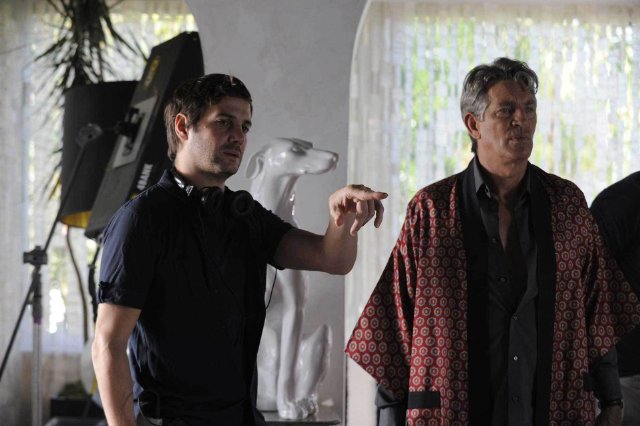
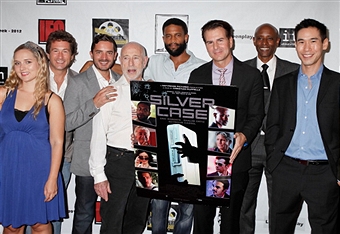
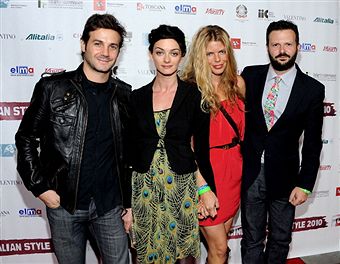
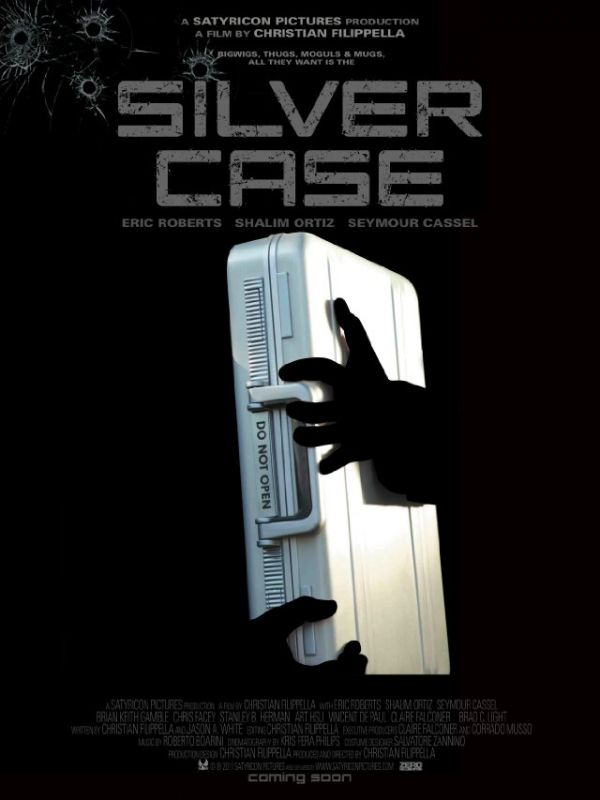
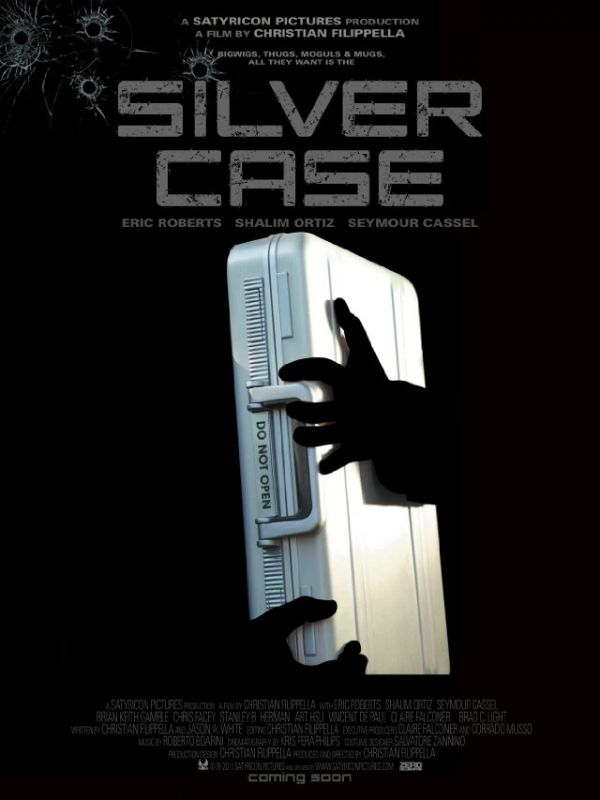

 Gilbert Ron
Gilbert Ron 


